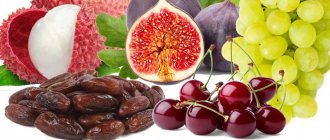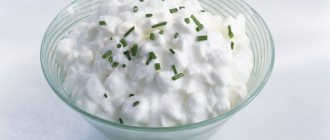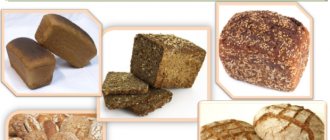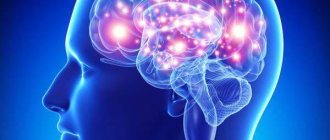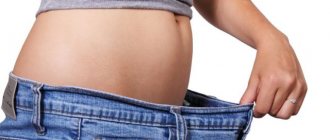The problem of excess weight is a pressing issue for many, but it can only be solved by combining physical exercise with dietary nutrition. If you seriously decide to take care of your body, lose weight and also create beautiful muscle definition, you need to try a protein diet. It is one of the most effective, and you don’t have to go hungry. Quite the contrary! The food will be quite filling.
Let us remember that proteins are the main building element of our body. In addition, they perform a lot of other tasks to support life, so their presence in a person’s daily diet is mandatory. Proteins consist of amino acids and come in plant and animal origin. Animal proteins are considered the most valuable, containing all the amino acids necessary for humans. Plant polypeptides are not as rich in amino acids, so their nutritional value is lower. With a protein deficiency, muscle mass begins to decrease, gradually being replaced by fat, immunity and resistance to stress decreases, fatigue sets in faster, and the condition of the skin, hair and nails noticeably worsens. Normally, a person needs 1 g of pure protein per day for every kilogram of weight.
The essence of a protein diet
The protein diet is based on the following postulates:
- simple carbohydrates are completely excluded;
- proteins make up 60% of the daily diet;
- fats (exclusively vegetable) are present in minimal quantities;
- Protein foods for better digestion are supplemented with a small amount of vegetables and fruits.
It is known that carbohydrates are the main sources of energy. When they are completely removed from the diet, an energy deficit occurs, and then the body begins to burn glycogen, and then fats.
- Food on a protein diet should be taken in small portions every 2.5–3 hours, 5-6 times a day, while doing fitness daily.
- Particular attention should be paid to the quality of products. Sausages, smoked meats and semi-finished products from the supermarket should definitely be excluded, because first-class meat and fats are not always used in their preparation. In addition, it includes all kinds of herbal and chemical additives - preservatives, dyes, flavors, etc.
- Preference should be given to lean varieties of meat, poultry and fish, because the abundance of lipids interferes with the complete absorption of protein. In this regard, it is better to avoid eating salmon, catfish, goose and duck, cod liver, pork and beef brisket.
Basic principles of protein and vitamin nutrition
The first rule that you should follow on a vitamin-protein diet for weight loss is to alternate protein and vitamin foods in your daily diet, do not eat them at once. The second important rule is to reduce the energy value of foods. This is a necessary measure to speed up weight loss. And third, eat separately, this will speed up your metabolism.
Other principles to improve the effect:
- Eliminate fats and carbohydrates. In accordance with the principles of the protein-vitamin diet, for the normal functioning of the body for a period of 10 days, the incoming vitamins and proteins are sufficient for it. Carbohydrates and fats can be added to the diet in small quantities in the last stages of weight loss and when exiting the regime;
- Eat 5-6 times a day. Breaks between meals should not exceed 2-2.5 hours. This is necessary to exclude manifestations of hunger and the likelihood of a breakdown;
- Avoid harmful drinks. Soda with sugar, as well as dietary varieties, mineral water with carbonation are not our drinks. On the diet, you will only drink pure still water, all kinds of herbal infusions and green tea;
- Reduce your portions. The feeling of fullness does not come while eating, but after some time;
- Avoid alcohol. All alcoholic drinks are very high in calories, and in addition, drinking them always makes you want to eat more.
Important note: remember that the result of a vitamin-protein diet depends not only on compliance with all the rules, but also on the initial indicators: weight, metabolic rate, diet before applying the diet. The effectiveness may be either higher than already indicated or slightly lower.
Contraindications and disadvantages of a protein diet
A protein diet gives excellent results in a short period of time, but it cannot be recommended for everyone because it is not balanced. Due to the low content of vegetables and fruits, the body does not receive enough vitamins, microelements and other beneficial substances necessary for a person. In addition, high amounts of protein in the diet can lead to acidification of the blood, as evidenced by a pH reading that drops below 7.35–7.45. In this case, the body requires more calcium, which begins to be removed from the bones. This threatens the development of osteoporosis. Therefore, a protein diet can be used for a maximum of a week, and then take a long break. Nutritionists for the most part say that such a diet can be applied only once every six months, and some experts adhere to a more strict approach: no more than once a year, because it creates a large load on the organs of the digestive system.
The following side effects may occur with a protein diet:
- Animal proteins take a long time to digest, and when carbohydrates and fiber are in short supply, this process becomes even longer. As a result, food lingers longer in the intestines, the processes of rotting and fermentation become more intense, which leads to flatulence and bad breath.
- The load on the kidneys increases, which can cause swelling in the legs and bags under the eyes, as well as on the liver.
- Due to slow digestion of food, constipation and exacerbation of gastritis and enterocolitis are possible.
- There may be surges in blood pressure, an increase in cholesterol levels is possible, and the risk of thrombosis increases.
- Feeling tired quicker and people become irritated more easily.
- In women, hormonal imbalance and ovarian dysfunction are possible.
From the above it follows that a protein diet is contraindicated in the following conditions:
- kidney and liver diseases;
- gout, diabetes, poor blood clotting;
- chronic diseases of the gastrointestinal tract;
- pregnancy and lactation.
It is also not suitable for older people, people with cardiovascular diseases, and teenagers.
Lovers of sweets will most likely find this diet difficult to tolerate. They may experience increased fatigue and nervousness due to carbohydrate deficiency. Often, after completing the course, they again take up high-calorie sweets, quickly gaining back the lost kilograms. But it will not be a burden for meat eaters.
The main advantage of the diet is a constant feeling of fullness, because protein foods take longer to process. In addition, protein foods help build muscle mass, so this type of nutrition is very suitable for bodybuilders to dry their bodies.
PROTEIN DIET (laboratory test for dietary control)
One of the most popular diets for many years is the protein diet. Indeed, protein intake is the basis of a healthy diet, unless protein is restricted for health reasons. Chicken breast, shrimp, cottage cheese and legumes are always perceived as examples of proper dietary nutrition.
The protein diet is based on the body’s ability to obtain energy primarily from carbohydrates and fats. Therefore, in the absence of their intake from food, previously accumulated ones are burned, which leads to weight loss. Proteins are not a source of ATP; their main function is construction. Enzymes and hormones, carrier globulins and many active substances are synthesized from proteins. Therefore, it is important to include protein foods in your diet, and during this diet, the food becomes high in protein.
In order to monitor the condition of the body in conditions of previously unusual nutrition, laboratory diagnostics are recommended. We offer a comprehensive examination, laboratory tests of which are selected exclusively based on the existing features of the protein diet.
· Clinical blood test with leukocyte formula and ESR: is a mandatory study that allows timely detection of anemia, inflammation, changes in the number of platelets, and to exclude the development of allergies, for example, to foods introduced into the diet.
· Urinalysis with sediment microscopy is extremely important for people with high protein intake, as it can assess protein loss in the urine, identify impaired renal filtration, check the acidity and density of urine, which reflects dietary behavior and may indicate the need for changes diet. Also, salts are excreted in the urine, which are recorded by the analyzer, so their detection is a reason to reconsider the consumption of salty foods and a number of products that increase the amount of urate in the urine.
· Vitamin D is determined during any deficiency, since the chosen diet does not exclude a decrease in the intake of this vitamin from food. Given the geographical features, residents of our country often suffer from vitamin D deficiency, which can be further aggravated by diet. To select the required dosage of a drug containing vitamin D, it is important to have information about its initial level before treatment.
· Since urea is the end product of protein metabolism, during a protein diet, its accumulation in the blood can be observed if the kidneys cannot cope with excreting its increased amount. Therefore, it is important to determine its concentration in the blood while following a protein diet. It should not be forgotten that chronic kidney disease can also lead to the accumulation of even small amounts of urea in the blood as a result of insufficient excretion in the urine.
· Uric acid, the formation of which is associated with purines entering the body, is determined as part of the study, since the main products containing purines are products of animal origin, most often seafood.
· Many people have been suffering from magnesium deficiency lately. Poor sleep, nervousness, and emotional lability can be caused by insufficient magnesium intake in the body. This mineral is important for the proper functioning of the nervous, cardiovascular, immune and other systems. The analysis also includes other important minerals, namely calcium and zinc, the level of which is important for a correct assessment of health status.
· Of course, one of the main indicators of blood composition during a protein diet is total protein and albumin, the levels of which may change against the background of the chosen diet.
· Since proteins take part in the synthesis of hormones, hormonal levels should also be checked, especially if there have previously been changes or dysfunction of the reproductive system. As part of the examination, total testosterone, estradiol and progesterone are assessed.
· A blood test for cystatin C is used to assess the filtration function of the kidneys (glomerular filtration rate, GFR - inverse correlation). It is an alternative to determining creatinine.
· Folic acid is often added to the diet during increased stress and dietary restrictions. A protein diet involves consuming foods rich in folic acid, but, nevertheless, if there is an initial lack of it, a deficiency may occur during the diet.
Whatever diet you choose, it is important that the general condition of the body only improves while following the new diet. Remember to evaluate important blood and urine parameters throughout your weight loss period.
Prohibited and permitted foods on a protein diet
A protein diet completely excludes the following foods:
- sweets (cakes, pastries, candies and other desserts, including natural honey);
- sweet fruits (banana, persimmon, dates, figs, apricots, grapes, watermelons);
- flour dishes, pasta and bakery products;
- fried and spicy foods, sauces, sausages, smoked meats, marinades;
- potatoes, legumes, cereals;
- animal fats;
- sweet drinks, soda, alcohol, store-bought juices.
Instead of them, the following should appear on your table:
- lean meat and poultry (veal, beef, rabbit, skinless chicken, turkey fillet);
- lean fish, seafood, canned fish in oil;
- offal dishes (liver, tongue, lungs, kidneys)
- raw, boiled eggs, omelettes;
- low-fat milk and fermented milk products;
- mushrooms;
- low-fat cheese;
- unsweetened pears, dried and fresh apples (preferably green), kiwi, citrus fruits, sour berries;
- tomatoes, cabbage, cucumbers, zucchini, greens;
- sugar substitutes;
- oatmeal, brown rice, buckwheat, bran;
- vegetable oil (linseed, olive);
- water – 1.5 liters per day, tea, coffee without sugar, fresh juices.
The weight of a serving eaten at a time should not exceed 250 grams, and the energy value of food per day should be 1200 kcal. The main emphasis is on meat, with fruits, vegetables and bran being auxiliary products. They contain fiber necessary for normal digestion, since protein foods cause constipation. Normally, a person also needs carbohydrates; with a protein diet, they are replaced with oatmeal or brown rice. The share of these products can be increased if fatigue has noticeably increased or dizziness has appeared. You can also take additional multivitamins due to the lack of them in your daily diet.
Protein in foods
- When on a protein diet, it is recommended to prepare the simplest possible dishes.
- Meat, fish and poultry can be boiled, stewed, baked on the grill or in the oven with a minimum amount of vegetable oil, and also steamed.
- You should not get carried away with spicy seasonings and additives, or add too much salt or pepper to your dishes. For piquancy, you can add just a little mustard.
- Store-bought sausages are not suitable for a protein diet.
- Fermented milk products with low fat content - cottage cheese, hard cheeses - fit perfectly into a protein diet.
- For dinner, you can drink protein shakes, which are sold in sports stores as sports nutrition, especially during heavy physical activity.
What vitamins are needed during the diet?
Content:
- What vitamins are needed during the diet?
- Vitamin complexes
- Diet tips
- conclusions
Diet is stressful for the body, since cutting the daily diet entails reducing the consumption of certain vitamins. As a result, the optimal balance of nutrients in the body is disrupted, and primary hypovitaminosis develops. This process, in 90% of cases, is accompanied by a decrease in performance, deterioration of the condition of the skin, increased psycho-emotional excitability, and exacerbation of chronic pathologies (herpes, psoriasis, thrush).
To prevent functional disorders, essential substances in drugs and dietary supplements are additionally introduced into the diet of those losing weight.
What vitamins should you take while dieting?
- Vitamin C. The main weight loss aid, stimulating the conversion of glucose into energy (not fat). In addition, the nutrient increases the body's resistance to infections, accelerates the production of the anti-stress hormone (norepinephrine), improves cholesterol metabolism, and strengthens capillary walls.
During diet therapy, it is important to consume 2000 – 2500 milligrams of L-ascorbic acid per day.
If there is a lack of substance in the body, the following problems arise: bleeding gums, dizziness, irritability, hair loss, tachycardia, dry skin.
- Vitamin E. Natural antioxidant that improves metabolic processes in the dermis. Along with this, the “beauty” vitamin controls lipid and carbohydrate metabolism, maintains skin turgor (by stimulating collagen synthesis), regulates the production of sex hormones, shortens the period of muscle regeneration, and reduces psycho-emotional excitability.
When following a diet, the need for the element increases to 30 milligrams per day.
The first signals of a lack of tocopherol in the body are muscle weakness, “tingling” in the limbs, hair loss, dry skin, mood swings, and decreased libido.
- Vitamin A. The strongest antioxidant factor responsible for the normal condition of the skin (including a beautiful complexion). Retinol accelerates the restoration of epithelial and muscle tissue, prevents “sagging” of the epidermis (when losing weight), increases visual acuity, improves fat metabolism, and increases the bioavailability of iodine (necessary for the correct functioning of the thyroid gland).
The requirement for vitamin A is 2 milligrams per day.
- Vitamin B1. Accelerates the processing of carbohydrates into energy, reduces excessive appetite, improves emotional background, and stabilizes blood sugar levels.
The physiological need for the substance is 1.5 milligrams per day.
Thiamine deficiency is indicated by cold extremities, cardiac arrhythmia, irritability, and digestive disorders.
- Vitamin B2. Normalizes protein, fat and lipid metabolism, accelerates the transformation of glucose into energy, improves the condition of hair and skin, and stimulates the production of hemoglobin.
The daily norm is 1.8 milligrams.
If there is a lack of substance, cracks in the corners of the lips, clouding of the cornea of the eye, lacrimation, dry mouth, and photophobia occur.
- Vitamin B6. Improves the functioning of the thyroid gland (a key element in metabolic control), accelerates muscle recovery after physical activity, stimulates lipid metabolism, and participates in maintaining the immune response.
The daily requirement for people losing weight is 3 milligrams.
Insufficient consumption of pyridoxine is accompanied by memory deterioration, the development of homocysteinemia (a risk factor for thrombosis), and deterioration of the skin (acne, dermatitis).
- Vitamin B12. Accelerates the process of natural fat breakdown, increases performance and endurance (during strength training), improves mood.
The daily portion is 0.003 milligrams.
Signs of deficiency: pallor of the skin, inflammation of the papillae of the tongue, rapid heartbeat, “tingling” of the extremities, hair loss, dizziness.
To increase the “effectiveness” of the diet, micro- and macroelements are consumed along with vitamins.
List of essential substances
- Calcium. Stimulates the breakdown of fatty tissue, suppresses hunger, and accelerates muscle contraction.
During the diet, consume at least 1200 milligrams of calcium per day.
- Chromium. Reduces cravings for sweet foods, activates metabolism, accelerates the transformation of fat into muscle tissue (during physical activity), and reduces blood glucose levels.
The daily norm is 0.1 milligrams.
- Manganese. Protects the liver from fatty infiltration, accelerates the utilization of lipids into energy.
The physiological need for adults is 2 – 3 milligrams per day.
- Zinc. Reduces hunger, accelerates the breakdown of fats and proteins, improves the appearance of the skin.
The norm is 15 milligrams.
- Magnesium. Calms the nervous system, stimulates intestinal motility, accelerates glucose metabolism reactions, and increases bile secretion.
The need for magnesium is 400 milligrams.
Remember, during the diet it is important to drink at least 2.5 liters of water per day (to avoid constipation, intoxication of the body and poor health).
Sample protein diet menu for the day
The protein diet can be short-term (3-7 days) with three meals a day and long-term (usually 2 weeks) with split meals. The longer you stick to the diet, the more vitamins and microelements it should contain.
An approximate power supply diagram could be like this:
- 1st breakfast: yogurt without fillers (options: low-fat kefir, cottage cheese, two eggs), tea or coffee;
- 2nd breakfast: green apple (orange, grapefruit, kiwi);
- lunch: chicken (fish, veal) with vegetables, brown rice, buckwheat, oatmeal (about five spoons);
- afternoon snack: natural yogurt (low-fat cottage cheese, kefir, fermented baked milk, low-fat cheese);
- dinner: fish (veal, seafood, chicken) with vegetable salad, tea, fresh juice diluted with water.
Most often, a protein diet is kept for 5-7 days, less often – 14 days. It is extremely rare that if the body tolerates such nutrition easily, it is followed for a month, but doctors strongly recommend not to experiment. A protein diet menu for a week usually contains a small amount of vegetables and fruits, but as its duration increases, their amount should increase. And if you feel very tired and drowsy, it is better to increase the amount of carbohydrates. Therefore, the protein diet menu for 14 days usually contains more oatmeal, brown rice, buckwheat and vegetables.
Types of protein diets
There are many options for protein diets. All of them belong to the low-carbohydrate group and are based on the same principle - more protein, less carbohydrates.
- One of the most popular options is the egg diet. It is relatively easy to tolerate because the daily diet is quite balanced. It is also expected to avoid fats and limit carbohydrates, but fruits and vegetables are allowed in fairly large quantities. Eggs, chicken or quail, are eaten boiled or baked in the oven as an omelet.
- The basis of the Japanese diet is seafood, fish, rice and soy. Carbohydrates and fats are present, but in limited quantities. Salt, sugar, baked goods made from white wheat flour are completely excluded. You are also allowed to eat cabbage, eggplant, zucchini, carrots, tomatoes, lean beef, chicken, eggs, unsweetened fruits, low-fat dairy products, and whole grain bread.
- Another type of protein diet is cottage cheese. In this case, the emphasis is on fermented milk products and greens.
- The Dukan diet initially allows skinless chicken, turkey, fish, low-fat dairy products, a spoonful of oat bran per day, and after a few days vegetables are introduced.
How to get out of a diet
You need to exit any diet gradually so that the lost kilograms do not return after a short time. First of all, you should not dramatically increase portion sizes. Previously excluded foods can be added little by little, but flour and sweets should be the last thing in the daily diet. It is better to increase the amount of fruits and vegetables, as well as cereals. You need to continue to eat lean meat, fish, and dairy products. Alcohol is allowed no earlier than 5 days after switching to a regular diet.
The main advantage of the protein diet is that it allows you to lose 3–5 kilograms in a matter of days without fasting, but it should be used very carefully and not for long.
The vitamin-protein diet is one of the simplest and most effective: minus 5–7 kg in 10 days
The vitamin-protein diet is one of the simplest and most effective. Unlike radical weight loss methods, it is easily tolerated and does not cause a feeling of hunger. In this case, you can lose up to 5–7 kilograms of excess weight in 10 days .
The essence of the diet is this: every day you eat exclusively protein and vitamin foods, but separately at different times. Fractional nutrition allows you to get by in small portions and does not harm the body. Alternating intake of these products promotes metabolism switching and significant weight loss.
The benefits of vegetables, fruits and protein foods for the body
Vegetables and fruits are a storehouse of vitamins, minerals and antioxidants necessary for the full functioning of the body. This is the basis of a healthy diet . They contain fiber, which ensures good digestion, as well as a large amount of water and fructose (a complete substitute for sweets).
Protein is an essential component of food that ensures tissue growth and repair . Its deficiency negatively affects health: hormonal levels decrease, the functioning of the brain, liver and enzymatic systems is disrupted, and dystrophy develops. Therefore, diets that exclude protein from the diet cause significant harm to the body.
What foods can you eat while on a diet, and which ones can’t?
almost any vegetables and fruits in your diet (cabbage, beets, tomatoes, cucumbers, apples, tangerines, oranges and others). we still advise you to avoid those that contain too many carbohydrates For the same reason, potatoes, peas and corn suitable
Protein-rich foods allowed in this diet: eggs, fish, lean meat, chicken, low-fat cottage cheese, feta cheese, cheese, good quality boiled sausage.
You can drink unlimited quantities of purified water, herbal infusions and tea without sugar.
Despite the wide list of products that can be consumed during the vitamin-protein diet, there are also significant limitations . Any sweet foods, fatty foods, cereals and bread should be excluded from the diet. You should also forget about sauces, ketchups, mayonnaise and hot spices. Store-bought juices, tea and coffee with sugar, sparkling water and all types of alcohol are also taboo.
Protein-vitamin diet: sample menu for 5 days
1st day
- Breakfast: 2 boiled eggs
- Second breakfast: 1 grapefruit or 100 g pineapple
- Lunch: 150–200 g boiled beef;
- Afternoon snack: 2 pears or 2 apples
- Dinner: 100 g boiled chicken
- Breakfast: 50 g low-fat cheese
- Second breakfast: 1 grapefruit
- Lunch: 150 g boiled turkey
- Afternoon snack: 1 cucumber, 1 tomato
- Dinner: 150 g baked beef
- Breakfast: 100 g cottage cheese
- Second breakfast: 1 kiwi or 1 orange;
- Lunch: 200 g boiled fish
- Afternoon snack: 1 carrot or 1 bell pepper
- Dinner: 150 g baked chicken
- Breakfast: 40 g of cheese (pour boiling water over it - this will reduce the amount of salt)
- Second breakfast: 1 orange
- Lunch: 200 g baked fish
- Afternoon snack: fresh cabbage and parsley salad
- Dinner: 150 g boiled chicken
- Breakfast: 2 quail eggs and a piece of cheese
- Second breakfast: 1 apple or 1 kiwi
- Lunch: 200 g boiled rabbit
- Afternoon snack: 1 boiled beet
- Dinner: 100 g of baked fish.
2nd day
3rd day
4th day
5th day
The menu for the next five days is repeated.
Despite its apparent safety, it is not recommended to go on this diet more than once every 2-3 months .
a smooth exit over the next 10 days . Gradually include oatmeal, buckwheat, bran, durum wheat pasta, whole grain bread and rice in your diet. For sweets, you can start eating dark chocolate.
Now is the perfect time for a protein-vitamin diet. It will help you lose a few extra pounds before your summer vacation. And during the holiday itself, when you want to take a break from cooking and heavy food, the diet menu will come to your rescue. Perhaps this information will be useful to your friends, share the article on social networks!
